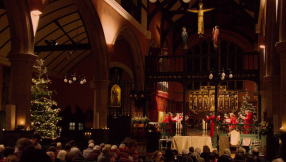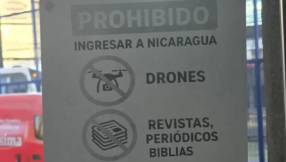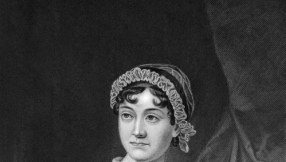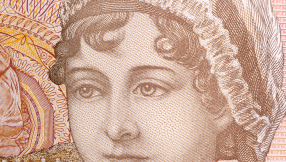
President Harry Truman famously had on his desk in the Oval Office a sign which said, 'The buck stops here.' What this sign meant was that in the American political system it is in the final instance the President who must make the decisions and accept the ultimate responsibility for those decisions.
If we can imagine that God has a desk in heaven, then we can also imagine that God likewise has a sign on his desk reading 'The buck stops here.' This is because infinitely more than in the case of an American President it is God who makes the decisions and carries the ultimate responsibility for them.
This is something that we often forget when we seek an explanation of what is going on in the world. Two examples serve to illustrate this fact.
The first is the issue of the origins of Covid-19. There is still uncertainty about the precise origins of the Covid-19 virus. No one can say with certainty where the virus came from or under what circumstances it first spread, whether, for example, it came from poor hygiene in a market or was accidentally released from a laboratory.
The second is issue of the reasons for the Russian decision to invade Ukraine. Was this, as some have argued, a totally unprovoked assault ordered by the President of Russia because of a belief that Ukraine is properly part of Russia and/or fear of the influence of Ukrainian democracy within Russia, or was it, as Professor John Mearsheimer and others have argued, a result of needless provocations by the West, and America in particular, leading the Russians to believe that Ukraine posed a genuine threat to their security?
From a Christian perspective the interesting thing about the current debates on both these issues is that God is left out of the picture. The unspoken assumption is that there is solely natural explanation for the rise and spread of Covid-19 and a solely political explanation for the outbreak of war in Ukraine. However, the Christian has to say that this assumption is mistaken, and to explain why, the providence of God as classically summarised in chapter 5 of the Westminster Confession of 1646 is helpful here. This declares:
'God, the great Creator of all things, doth uphold, direct, dispose, and govern all creatures, actions, and things, from the greatest even to the least, by His most wise and holy providence, according to His infallible foreknowledge, and the free and immutable counsel of His own will, to the praise of the glory of His wisdom, power, justice, goodness, and mercy. Although in relation to the foreknowledge and decree of God, the first cause, all things come to pass immutably and infallibly, yet, by the same providence, He ordereth them to fall out according to the nature of second causes, either necessarily, freely, or contingently.'
What is said here makes two key points which we find taught either explicitly or implicitly throughout the Bible.
The first point is that God is in control of all that happens. In the words of Psalm 135:6 'Whatever the Lord pleases he does, in heaven and on earth, in the seas and all the deeps.' Wherever you go in creation, says the Psalmist, there you will find God doing exactly as he pleases.
The second point is that God works through secondary causes. Thus, in the book of Genesis the secondary cause of Joseph going down to Egypt was that his brothers sold him to some Midianite slavers who took him there. However, the primary cause was God's will that Joseph should go to Egypt in this way. As Joseph subsequently tells his brothers 'As for you, you meant evil against me; but God meant it for good, to bring it about that many people should be kept alive, as they are today' (Genesis 50:20).
The existence of secondary causes means that we can make a distinction between God's active and permissive will. God did not actively will the sinful jealousy and greed of Joseph's brothers (the secondary causes of what took place), since that would be to make God the author of sin, but in his wisdom, he permitted them to exist and for them to result in Joseph going to Egypt.
In similar fashion we can and should say that God did not actively will the biological mutation that led to the rise and spread of Covid-19 but that he has permitted it to occur, and that likewise he did not actively will that there should be a war in Ukraine, but that again he has permitted it to happen. God did not actively cause either Covid-19 or the war in Ukraine, but he has permitted, or allowed the existence of both.
The limitations of our human understanding we cannot, in this world at least, expect to fully understand why God acts in the world in the way he does either in terms of what he actively causes or in terms of what he permits. As HH Farmer puts it, 'It must indeed be once and for all admitted that it is not possible for our minds to grasp how it should be possible for all events to fall within the scope of the divine providence and be made ultimately subservient to His purpose.'
Nevertheless, the Scriptural witness that everything unfolds according to God's plan with no unforeseen and unintended by products makes perfect sense if we accept that God is God. In the word of CS Lewis:
'...the distinction between plan and by product must vanish entirely on the level of omniscience, omnipotence, and perfect goodness. I believe this because even on a human level it diminishes the higher you go. The better a human plan is made, the fewer unconsidered by-products it will have.'
To put it another way, accidents happen because no human plans are perfect, but the more perfect the plan the less room for accidents. God's plans are completely perfect, therefore nothing that has happened or been allowed to happen is by accident or a surprise to God. All is ordered as He wills – both what He permits and what He actively causes.
This can help us to make peace with the reality of someone dying of Covid or Mariupol being shelled into uninhabitable rubble. It is the fact that in the end, the buck stops with God, He makes the ultimate decisions, and this is the only thing that gives us true hope.
It is precisely because God is sovereign and orders all things according to His plan and purposes that we can have hope and peace in the belief that he is indeed at work in tragedies like the Covid-19 pandemic and the war in Ukraine, and that we can trust that in the end there will be a right resolution to them.
Martin Davie is a lay Anglican theologian and Associate Tutor in Doctrine at Wycliffe Hall, Oxford.













